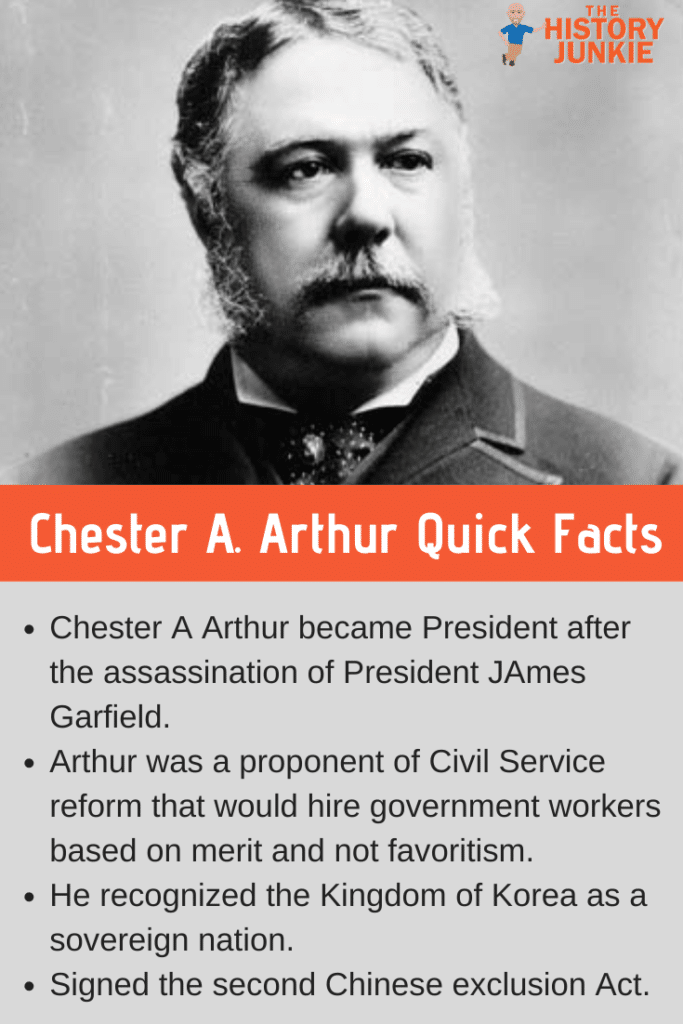President Chester Arthur became President of the United States after the assassination of President James Garfield.

Arthur had been a small fish in a large pond for many years and was not well-known politically. Before being named Vice President, he was most well-known for being fired from the Hayes administration.
As President, he surprised many of his supporters by ignoring them and going after fellow Republicans who had been corrupt. He signed a bill that would reform the civil service workforce and would hire based on merit and not favoritism.
During his presidency, Arthur had concealed a rare kidney disease that was killing him. After his tenure was over, he returned home, where he died 2 years later.
Arthur's Term
September 20, 1881: Chester Arthur is sworn in as President of the United States.
September 22, 1881: Arthur formally takes the oath of office in Washington, D.C.
November 14, 1881: The Trial of Charles Guiteau begins. Guiteau had assassinated Garfield, believing that he was cheated out of a position in his cabinet. It was clear throughout the trial that he was delusional. Guiteau was sentenced to hang and was hung the following June. His skeleton was donated to the Army Medical Museum.
December 15, 1881: James G. Blaine resigns from Arthur's Cabinet, further dividing the Republican Party.
February 28, 1882: Congress passes a bill that ties the population to the Census for the first time. This increases the number of Representatives to 325.
March 16, 1882: The Senate ratifies the Geneva Convention of 1864, which makes medical personnel on the battlefield neutral. President Chester Arthur supports the treaty.
March 22, 1882: Congress passes the Edmunds Act that forbids bigamists or polygamists from holding office. The controversy over the practice of bigamy and polygamy in Utah by the Mormons would delay the state's admittance to the Union.
May 6, 1882: Arthur sings a second version of the Chinese Exclusion Act, which forbids immigration by "lunatics," "idiots," and Chinese laborers and denies rights to Chinese workers already in the United States. The law would be renewed until 1946.
May 15, 1882: Congress authorizes Arthur to appoint a nine-man Tariff Commission. The Commission would choose to lower tariffs that December.
May 22, 1882: The United States recognizes the Kingdom of Korea as a sovereign nation.
August 1, 1882: Arthur vetoes the Rivers and Harbors Act, but due to its popularity in Congress, they would pass the bill again and override him.
September 11, 1882: The Star Route Scandal ends with all nine defendants that were being prosecuted found not guilty.
November 7, 1882: Democrats win the House in the midterm elections.
January 16, 1883: Congress passes the Pendleton Civil Service Reform Act to reform the civil service system. Arthur signs it into law.
March 3, 1883: Congress passes the Mongrel Tariff Act that lowers the tariff on select items.
May 13, 1884: Congress repeals the 1862 Test Oath.
